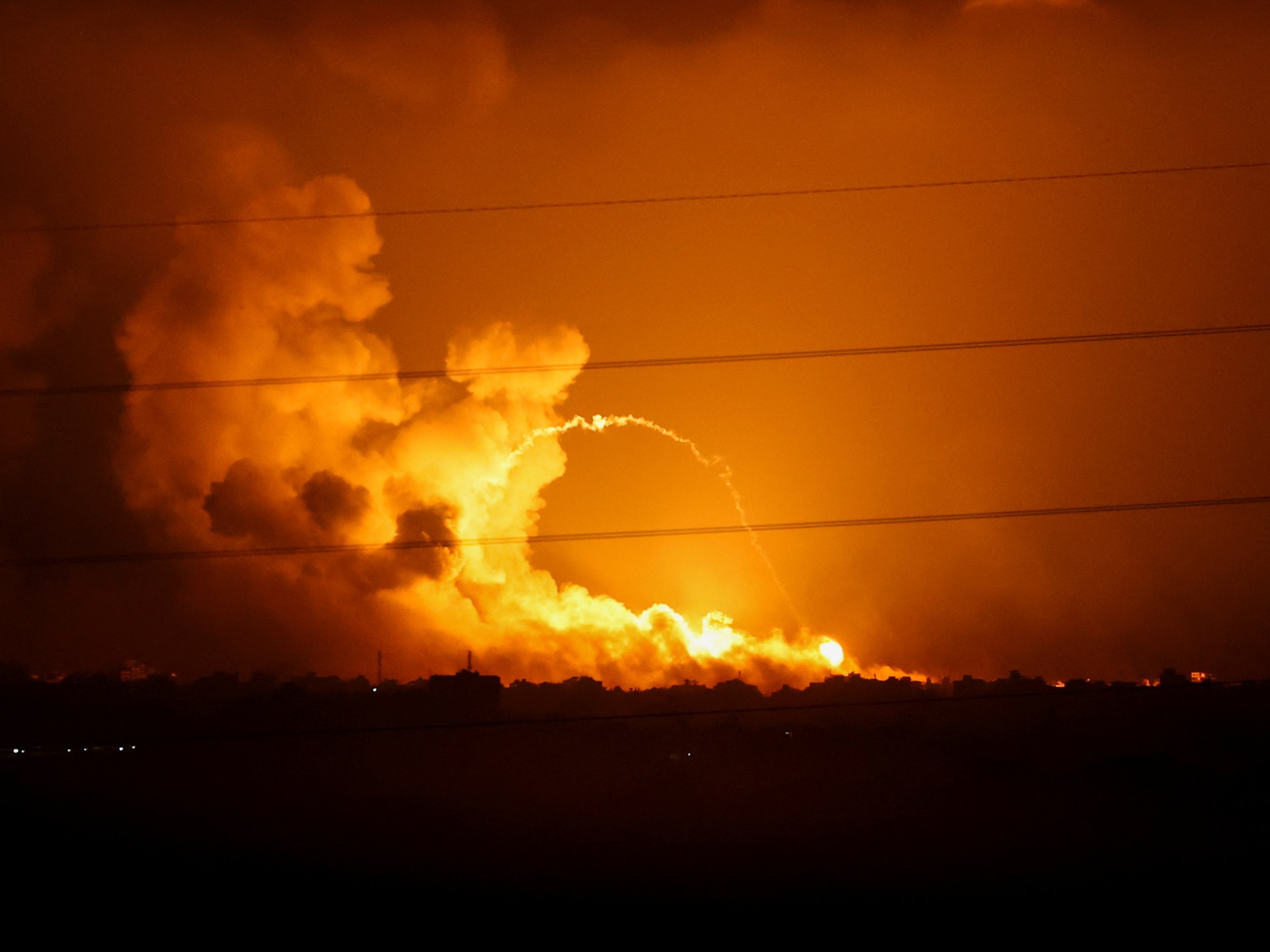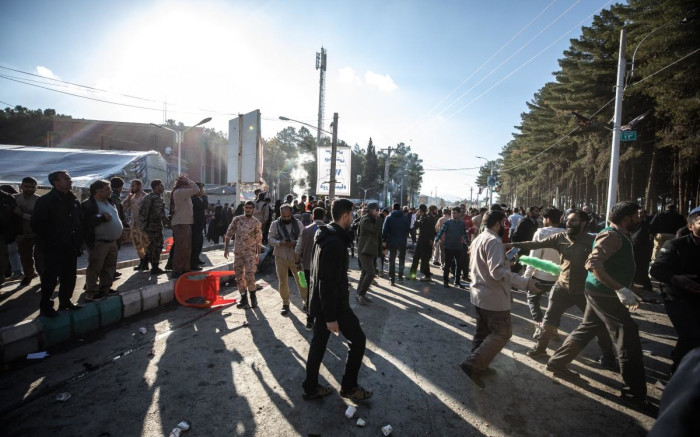
Khaled Nezzar, a shrewd, outspoken Algerian general and former defense minister who played a central role in the bloodshed that marked his troubled country’s transition from the 20th century, died Dec. 29 in Algiers. He was 86.
His death was confirmed by his son Lotfi in a telephone interview from the capital Algiers.
General Nezzar, who was charged with war crimes and crimes against humanity when he died in Switzerland, was a key player in the most traumatic episodes of his country’s recent history.
It is spoken about sparingly in Algeria – since 2006 it has been a criminal offense to “exploit the wounds of national tragedy” – but this bloody history and the country’s refusal to recognize it have contributed to its continued isolation from its North African neighbors and the Middle East East contributed.
The story centered on General Nezzar, who received a hero’s burial at a state funeral in Algiers attended by the prime minister.
As army commander, he ordered troops and tanks to enter Algiers in October 1988 to put down an uprising by young people angry about deteriorating living conditions and incited by Muslim fundamentalists. At least 500 people died in the narrow streets of Algiers.
“The army was given free rein to fire into the crowds and torture arrested prisoners,” wrote historian Martin Evans and journalist John Phillips in the book “Algeria: Anger of the Dispossessed” (2007).
In his 2018 memoir, General Nezzar blamed the massacre largely on tired, inexperienced troops, saying they were pressured by a heckling mob.
After this episode, he was promoted to chief of staff of the army, where he again played a central role in an even larger conflict, the Algerian civil war of the 1990s, the so-called Black Decade.
As defense minister from 1990 to 1993 and “de facto “Head of state,” according to Evans and Phillips, General Nezzar led the first phase of the army’s brutal suppression of a radical Islamist insurgency that sparked the civil war. This conflict would last almost ten years and cost more than 100,000 lives.
Both sides committed massacres, torture and other atrocities, and the Algerian population was caught in between. The Islamists slit throats, beheaded villagers and shot teenage girls for not wearing the veil. Hooded government special forces known as “ninjas” carried out arbitrary arrests, killings and systematic torture with electrodes. Some 20,000 Algerians were “disappeared” and more than 1.5 million were driven from their homes.
In Algiers, a private, unmarked memorial wall at the headquarters of an association of mothers of the disappeared displays hundreds of photos of the young men and women who were never seen again, many of whom were kidnapped by state security services.
Despite holding some of his country’s highest positions, General Nezzar has repeatedly denied responsibility for the bloodshed. He broke with the ruling elite’s code of silence and published numerous and bellicose memoirs in which he justified his repression of the Islamists.
“Those who said that the fundamentalists accepted the democratic game understood nothing of the essence of their dogma,” he wrote.
General Nezzar portrayed the fight against the Islamists as a matter of life and death for his country. “We were convinced that the seizure of power by the Islamists would mean the downfall of Algeria,” he said in 2002. “The Algerian army has fulfilled their duty. Although there were mistakes, this is not an army of barbarians.”
However, historians have largely concluded that the army’s brutality exacerbated an already rampant conflict.
When General Nezzar walked out of a bank in Geneva in 2011 – like many other senior Algerian officials, he had bank accounts in Switzerland – he was arrested and briefly detained in response to complaints from human rights group TRIAL International and two victims of torture by the army.
Last August – after 12 years of hesitation by Swiss authorities and despite pressure from Algerian officials to drop the case – the Swiss Attorney General indicted General Nezzar, as defense minister and leading member of the High Council of State, for overseeing the Algerian security services’ ruthless campaign against the Islamist rebels . Because their goal was the complete annihilation of the Islamists, historians referred to hardliners like General Nezzar as “eradicators.”
General Nezzar’s victims “were tortured with water or electricity and subjected to other cruel, inhumane and degrading treatment,” the attorney general’s office said in a statement. It added: “Nezzar knowingly and deliberately condoned, coordinated or ordered these abuses” with the aim of “eradicating the Islamist opposition.”
In December, authorities set his trial for June 17 this year. Two days later, General Nezzar was dead.
There are no known further criminal proceedings for crimes committed during the civil war and few of the accused perpetrators are still alive. The trial “would have been the final moment to open the box on the crimes committed during the Black Decade,” said Philip Grant, executive director of TRIAL International, in a telephone interview from Geneva.
In Algeria, opinion about General Nezzar was divided. Reviled by many, others saw him as having helped save the country from a fate even worse than the military rule he had subjected it to: Islamist dictatorship.
“He was no angel,” said Nacer Djabi, a prominent sociologist from Algiers. But the Islamists “were not angels either,” he said. “They were partners in a civil war.”
Khaled Nezzar was born on December 25, 1937 in Seriana, a town in the mountainous Aurès region of eastern Algeria. His father, Rahal, had been a conscript in the French army when Algeria was a French colony and had fought in the French colonial wars. General Nezzar’s mother, Rebiya, died when he was 8 years old. As a youth, he attended French-run military preparatory schools in Algeria and then attended the National School for Junior Officers at Saint-Maixent-L’Ecole in western France.
In 1958, at the height of Algeria’s war of independence against France, he left the French army and joined the Algerian National Liberation Army in Tunisia. He became part of a cadre of deserters who would wield great influence after Algeria’s independence in 1962.
In the 1960s and 1970s he attended military schools in the Soviet Union and again in France. Along with other Arab forces, he commanded Algerian troops in the so-called War of Attrition with Israel in 1968, an experience that helped him rise in the rankings.
After Algeria’s Islamist party won a majority in the first round of the country’s first free elections in December 1991, the government – with General Nezzar as defense minister – declared a state of emergency, suspended the elections, banned the party and formed a five-member committee, including him to rule the country. Armed with what Swiss authorities called a “policy of extermination,” largely formulated by General Nezzar, security forces began killing Islamists.
General Nezzar narrowly escaped an assassination attempt in 1993 and resigned from government the following year at the age of 57. “He was a Republican,” said his son Lotfi. “Give back the key, don’t stay here.” But he remained an influential voice in the military shadow that still dominates Algeria’s authoritarian government.
In addition to Lotfi, he leaves another son, Sofiane; his daughters, Lamia Nezzar Medjaher, Soumia Nezzar and Nassila Nezzar Johnson; and his wife Hassiba.
General Nezzar was combative until the end. Recently an Algerian news site posted a video It shows him being accosted by a heckler who shouts “Murderer!” at a Paris airport. General Nezzar initially appears to ignore the man before quickly turning around and hitting him with his stick.
He always insisted that the excesses of the civil war were the fault of the Islamists, whose brutality was unparalleled. “Did the Islamists do what they did to us somewhere else?” he said at a press conference in Algiers five years ago. “Never!”
But Mr Grant, of the human rights group, said: “The argument that the other side was worse doesn’t hold water.”
“We have no evidence of him in the torture chamber,” he added, but when asked whether General Nezzar was guilty of atrocities, the answer was clear: “In terms of his role, his direction,” his knowledge – yes .”






Recent Comments